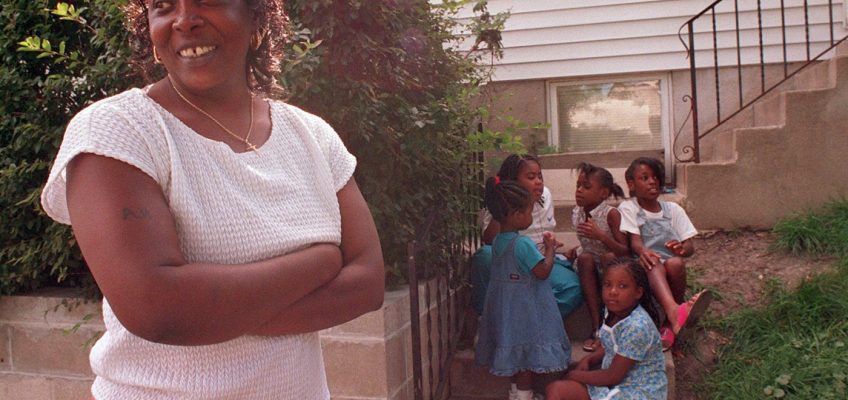After months of asking her landlord to repair the failing furnace at her Minneapolis duplex, Stormy Harmon was forced to vacate the property with her three children when it finally broke down in October 1996.
Facing a mess of unexpected hotel bills that she could scarcely pay, the single mother turned to a local legal aid office for help. The newly minted attorney who took up Harmon’s case quickly saw there was more to her story than a broken furnace.
Less than a year later, Harmon’s attorney won her what was then the largest jury award for a single family’s race-based housing discrimination claim in U.S. history, according to a 1997 Pioneer Press report.
Rep. Melissa Hortman and her husband, Mark, were photographed Friday, June 13, 2025, at the annual Humphrey-Mondale Dinner in Minneapolis. (Courtesy of Minnesota House DFL Caucus)
That attorney was former Minnesota House Speaker Melissa Hortman, then a 27-year-old recent graduate of the University of Minnesota Law School.
Hortman would soon open her own legal practice specializing in similar cases before embarking on a distinguished political career that was cut short last weekend when she and her husband were gunned down by an assassin in their Brooklyn Park home.
Hortman’s dogged pursuit of justice for Harmon and her children was emblematic of her desire to “use her law degree for good,” said Jean Lastine, who retired in 2023 as executive director of Central Minnesota Legal Services, where Hortman worked when she began work on the case.
‘She had empathy’
While many lawyers would likely be satisfied to get their client’s heat turned back on, Hortman’s “sense of justice” compelled her to do more, Lastine said.
In talking to Harmon, Hortman learned that she and her young daughters lived in fear of their landlord, Reynold Mattson, who Harmon said had harassed the family since shortly after they moved into the duplex.
“Melissa knew the law,” Lastine said. “She picked up on the fact that there were these larger issues. Not every lawyer would pick up on that.”
Jay Wilkinson, a retired attorney who worked with Hortman when she clerked for Mid-Minnesota Legal Aid, agreed.
“My guess is that I probably missed some cases because I wasn’t asking the right questions,” he said. “I think Melissa — being the kind, receptive and tenacious person she was — she probably picked up on it in a way that I or many others might have missed.”
While Wilkinson said most civil discrimination cases are settled out of court, this one went to trial. It was the type of case that might have intimidated another early-career lawyer, but Hortman took the lead, Lastine said.
“She was the attorney in this case,” Lastine said. “I sat in the trial with her, but I basically just took notes.”
During the trial, Harmon testified that Mattson had directed racial slurs at her and her daughters. She also said he chased the girls around with a stick. Mattson denied Harmon’s claims.
After the jury awarded Harmon and her children $490,000 in damages — an amount that was subsequently reduced by a judge — Hortman told the Pioneer Press that it should serve as a warning to other landlords.
“This case is about hatred and intolerance,” she said at the time. “I learned that the Mattsons treated other African-American tenants poorly — and differently than they treated white tenants.”
Lastine said Hortman “should be an inspiration to (early-career) lawyers wanting to do good.”
“Melissa was the one who saw our client suffering,” Lastine said. “She had empathy. It wasn’t about her as an attorney, it was about getting justice for the client.”
Related Articles
Marine of Minnesota’s ‘Twins Platoon’ details legacy of Vietnam in new book
Downtown St. Paul has been declared ‘dead’ before
Photo Gallery: George Floyd’s murder shook Twin Cities five years ago
5 tornadoes hit Twin Cities on ‘night of terror’ in 1965, leaving 13 dead
A century after it opened, St. Paul’s Ford plant is gone but not quite forgotten


Leave a Reply